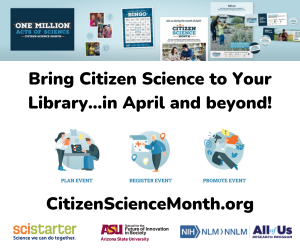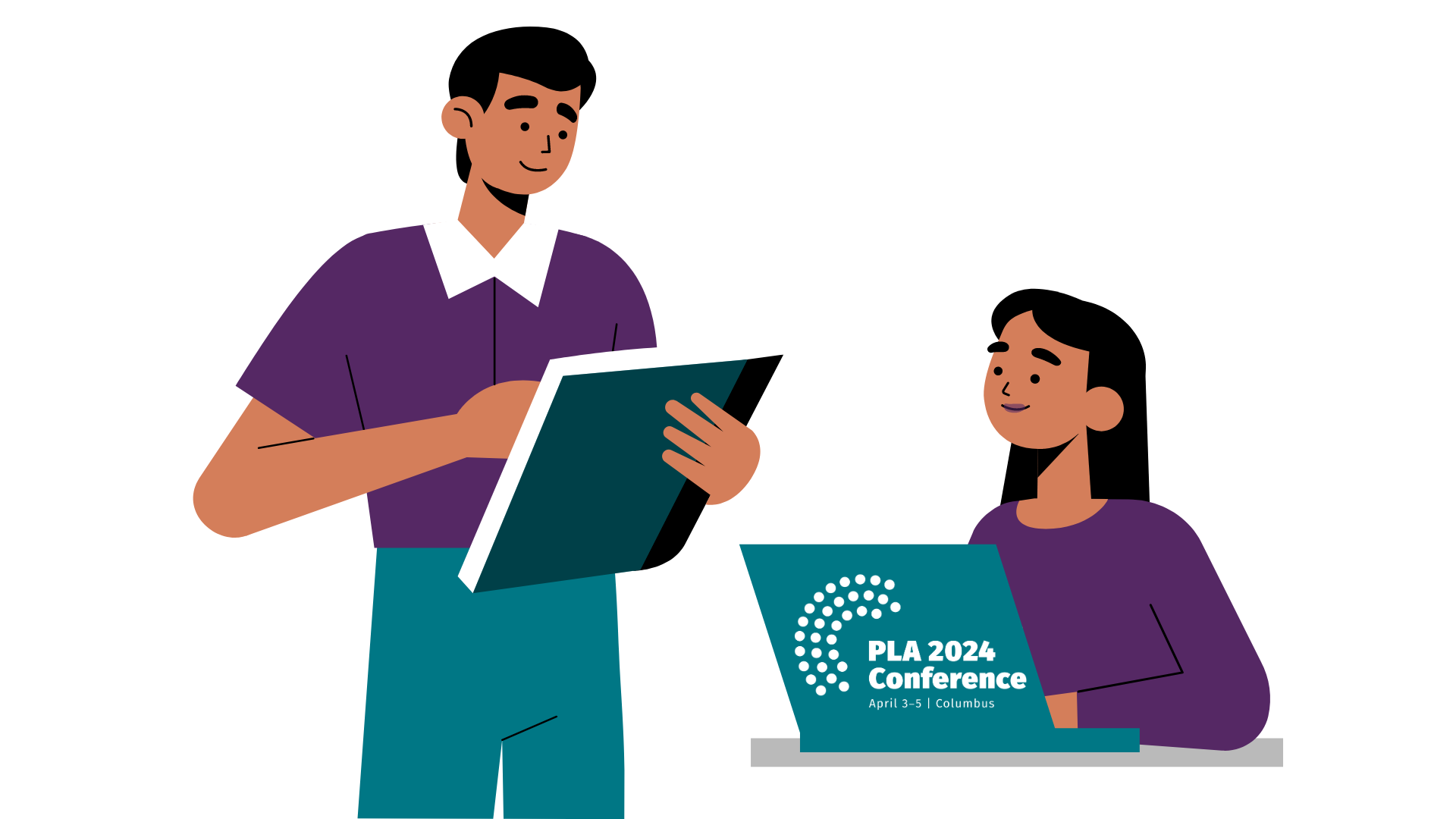Whole Person Librarianship

From the March/April 2015 issue “Public Libraries,” written by Sara Zettervall, Community Connections and Adult Services Librarian at the Hennepin County (MN) Library, Minneapolis.
The idea that librarians and social workers have something to offer each other isn’t new. When I interviewed PLA Past President Carolyn Anthony about this subject, she told me how she connected with social workers in Baltimore in the 1970s, to help them organize their information and distribute it to clients who visited her library. [1] Going further back, the service ethos of both public librarianship and social work is rooted in the great populist movements of the late nineteenth and early twentieth centuries. Today, we’re living in what may become a golden age of library-social work collaboration, as libraries experiment with hosting and hiring social services staff, as well as novel methods for providing reference services that go beyond information provision.[2] As we gear up for the American Library Association (ALA) Annual Conference in San Francisco, it’s a perfect time to reflect on how this trend can have a positive impact on all libraries.
San Francisco Public Library became the first library in North America to hire a full-time social worker in 2009, providing a model that has since been replicated with local modifications in Washington (DC), Edmonton (AB,Canada), and Dallas (TX), among others. These social workers provide a direct response to the needs of patrons experiencing homelessness and housing insecurity who seek shelter in urban libraries, often because they have no other safe, freely accessible place to go during the day. However, the benefits of collaborative work between librarians and social workers extend to all patrons. Libraries provide an ideal point of access for social-service providers to reach clients who may not know the full spectrum of services available to them. Social workers have access to case files and confidential information that aren’t available to librarians, giving them context for managing patron crises and the ability to make more appropriate referrals than frontline staff.
Many libraries struggle to secure sufficient funding to maintain their own staff, much less hire a social worker. How can public libraries of all sizes connect with and learn from our social-work colleagues? There are a number of ways libraries can make practical and theoretical connections that lead to growth in our ability to serve patrons without asking that we take on the burden of acting as social-service providers ourselves.
Host representatives from social service agencies in your library. Many social workers and social-services staff members spend part of their work time reaching clients where they live, rather than waiting for them to come to an office. Perhaps the most well-known example of this takes place at the joint-use, public-university Dr. Martin Luther King, Jr. Library in San Jose (CA). Professional social workers provide consultation in the library alongside social work students from San Jose State University, who gain valuable experience and help with program assessment.[3] In Hennepin County (MN), Minneapolis Central Library provides conference-room space for local service providers and promotes their presence through an announcement that appears on all library computer screens. In exchange, the service providers arrange a steady schedule of staff for these “office hours.” This is a relatively simple first step to build relationships with local agencies while meeting the needs of patrons without overburdening library staff members.
Seek out social work interns for specialized projects. My own interest in library-social work collaboration began in 2012, when I invited a social friend to co-lead a book club for teen Somali girls through Hennepin County (MN) Library. [4] I invited her to participate because of the potential for discussion of sensitive topics with this group of immigrant and second-generation girls. This was a particularly appropriate volunteer opportunity for her as a social worker because of the limited time commitment and defined target population. In another example, Skokie (IL) Public Library hired a social work intern to help build connections with local community-health organizations, facilitating connections with local Assyrian immigrants. There’s a lot of possibility for innovation for libraries willing to take on this type of collaboration. For example, some of the specific tasks that are performed by full-time library social workers in support of library stuff, such as crisis management training, could be assigned as defined internship projects.
Listen and respond to your patrons from a place of empathy. One of the primary tenets of social work is that each person is an expert on his or her own life. Another is that each person should be viewed in the context of his or her full existence because we are all inseparable from the systems in which we live. Together, these tenets from the base of serving the “whole person” – thus, librarianship informed by this principle becomes “whole person librarianship.” We all practice this when we engage our communities in planning services, policies, and programs, trusting that they are experts on what they need. The expertise we bring to the table is interpreting those needs and translating them to a library setting. We can expand on the success of our efforts by applying social work practices for nonjudgmental listening. As my social-work colleague, Mary Nienow, said, “Each person coming to the library has a story. They are more than their name, age, address, and place of employment (or lack of employment). Social workers take the time to uncover the context of the client’s environment. Taking the time to do this builds trust, which is essential in building a helping relationship.”[5]
Educate yourself towards social justice. In library school, we’re all introduced to the ALA Code of Ethics, which focuses on information provision, privacy, and neutrality. [6] The National Association of Social Workers also has a code of ethics, which focuses on “service, social justice, dignity, and worth of the person, importance of human relationship, integrity, competence.”[7] We are justly proud of our tradition of upholding our professional ethics as librarians – and we can also learn from the human-service principles of social workers. One way that social-work education differs from library-science education is an emphasis on the psychological and sociological factors that influence human behavior. As librarians, our learning in this area can inform our ability to serve all patrons. For example, a librarian who understands the difference between immigrant poverty and entrenched generational poverty will know how to better tailor services to each population rather than thinking of “the poor” as a monolithic group.
Conclusion
As public libraries continue to move towards a future “beyond books,” our ability to provide nuanced and respectful services to all patrons becomes ever more important. We don’t need to be social workers in order to provide extended services – through collaboration, librarians, and social workers can learn from each other. Librarians’ expertise on information organization and access is just as important a help to social workers as their human-service expertise is to us, and we have an exciting future together as we continue to explore those connections.
References
1. Sara Zettervall, “An Interview with Carolyn Anthony, PLA President,” Whole Person Librarianship, June 30, 2013, accessed March 26, 2015, http://mlismsw.wordpress.com/2013/06/30/an-interview-with-carolyn-anthony-pla-president.
2. Lynn Westbrook, “I’m Not a Social Worker: An Information Service Model for Working With Patrons in Crisis,” The Library Quarterly: Information Community, Policy 85, no. 1 (Jan. 2015), 6-25.
3. Rena Malai, “Program Brings Social Workers to Library Setting,” NASW News, Feb. 2012, accessed March 26, 2015, http://www.socialworkblog.org/nasw-news-articles/2012/02/program-brings-social-workers-to-library-setting.
4. Sara Zettervall, “Teens are Teens: A Book Club for Somali Girls,” Public Libraries Online, December 28, 2012, accessed march 26, 2015, https://publiclibrariesonline.org/2012/12/teens-are-teens-a-book-club-for-somali-girls.
5. Mary Nienow, “Public Librarians and Health Care: A Social Work Perspective,” Whole Person Librarianship, July 21, 2013, accessed March 26, 2015, http://mlismw.wordpress.com/2013/07/21/public-librarians-and-health-care-a-social-work-perspective.
6. American Library Association, “Code of Ethics of the American Library Association,” last modified Jan. 22, 2008, accessed March 26, 2015, http://www.ala.org/advocacy/proethics/codeofethics/codeethics.
7. National Association of Social Workers, “Code of Ethics of the National Association of Social Workers,” accessed March 22, 2015, http://www.socialworkers.org/pubs/code/code.asp.
.







